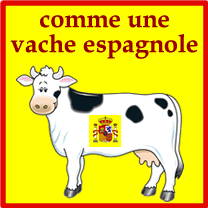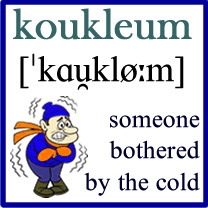If you are in the eye of the storm you are in the center or most intense part of a tumultuous situation, or literally in the calm region at the centre of a storm, hurricane, cyclone or typhoon [source].
In French equivalents of the eye of the storm include l’oeil du cyclone (the eye of the cyclone), l’œil de la tempête (the eye of the storm) and le cœur de la tempête (the heart of the storm) [source].
The French word tempête (storm, tempest), and the English word tempest both come from the Old French tempeste (storm, tempest), from the Latin tempesta (storm, tempest), from tempestās (storm, tempest, weather, season) from tempus (time, weather), from the Proto-Indo-European *tempos (stretch) [source].
The French word temps (time, weather), comes from the same root, as does the Spanish word tiempo (time, weather), Italian word tempo (time, weather) and related words in other languages.
The expression a tempest in a teapot, meaning ‘a small event that has been exaggerated out of proportion’, dates from 1818, and is apparently the American English equivalent of the British English storm in a teacup. Before then the equivalent was a storm in a creambowl, which dates from the 1670s [source]. Other versions of this phrase include a tempest/storm in a glass of water and a storm in a wash-hand basin [source].
In French you could talk about une tempête dans un verre d’eau (a storm in a glass of water)





